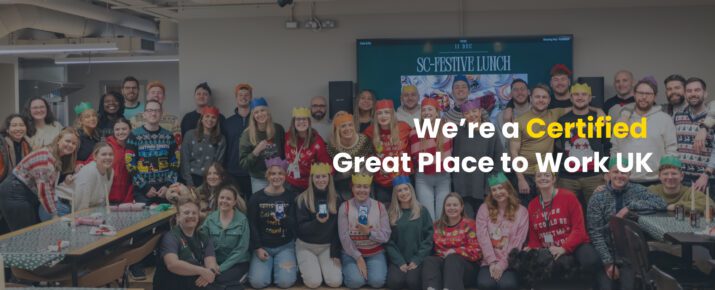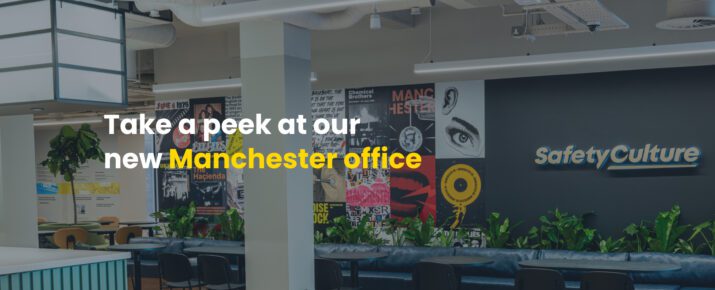Mindfulness at Work: How Meditation and Yoga Can Impact Safety Standards
SafetyCulture News | By | 18 Sep 2018 | 3 minute read
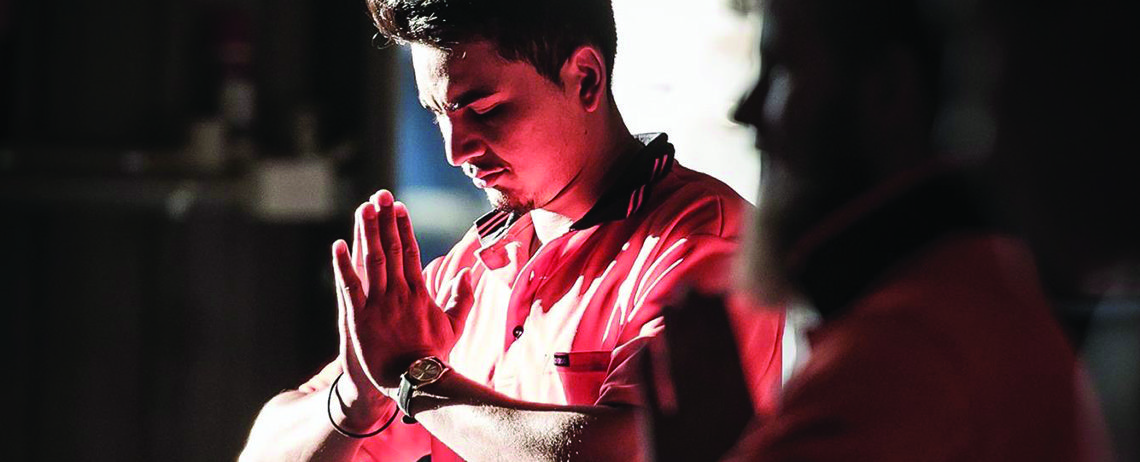
The image of a bunch of tradies standing around on a construction site doing yoga poses is an unlikely one, to say the least. But that’s what one Canberra-based organisation is encouraging.
Set up in 2016, the Healthy Tradie Project works with Australian companies to introduce mindfulness, yoga sessions and food advice to workers, and it’s showing wide-ranging impact.
Founder and health and nutrition coach Pip Seldon, who also doubles as an operations manager for a commercial construction company, says it not only helps physical and emotional well-being but can improve safety by boosting a worker’s focus while on the job.
She says companies often reach out where they’re seeing increased incidents or workplace compensation claims, so that issues can be tackled before hitting crisis level. Workshops can vary according to site and time constraints, but a typical session might be 20 or 30 minutes of movement and mindfulness.
“One of the ways in which we teach mindfulness on site in really just by using breaths,” she says. “We use breaths as a means of anchoring back to our present moment in a way that can help control anxiety, stress or pressure or what is happening in a certain situation on-site.”
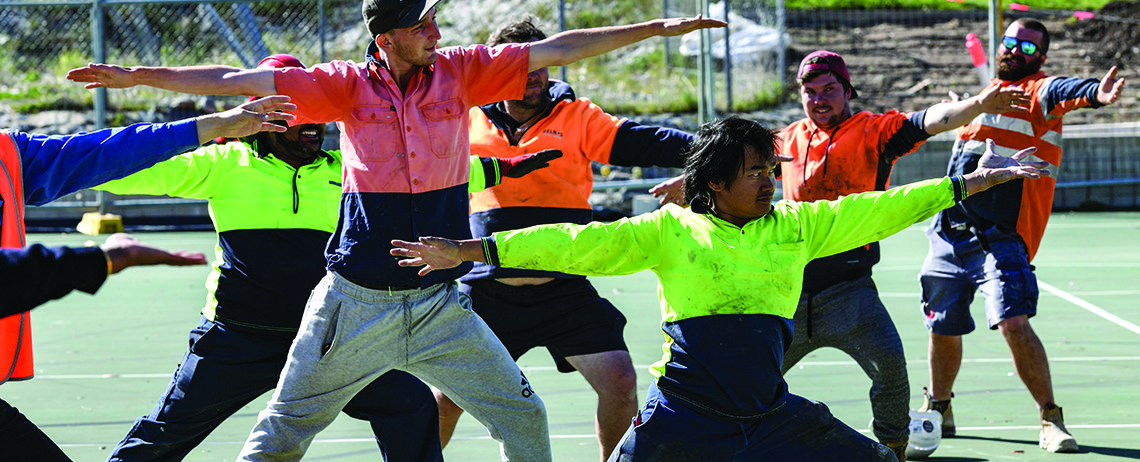 All images courtesy Kael da Costa Photography
All images courtesy Kael da Costa PhotographySeldon says usually most workers take part. That’s probably because it’s an interactive training session that doesn’t involve sitting in a room being talked at.
“We get them moving, we keep it really light-hearted,” she says. “They walk away feeling the benefits right there and then.”
A handful of workers might sit it out at first, but end up joining in anyway. “It all might come to a bit of a positive peer pressure because there’s more people doing it than not, so then they tend to all just join in.
“It’s engaging, and that’s what we want as part of the underlying goals. We’re using movement as a way of bringing people together, building a community and opening communication between them.”
Seldon says the project has had unexpected side-effects. One company had never held a Christmas party because the workers didn’t want to socialise with each other, but a few months of participating with the project sparked a new sense of engagement and team spirit. They had their first Christmas party as a result.
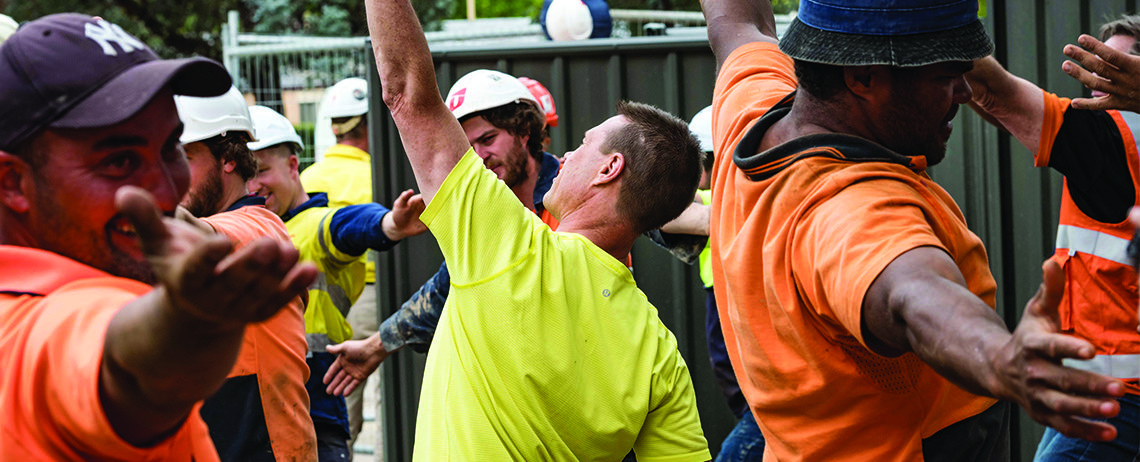
Festive get-togethers to one side, the Healthy Tradie Project has a very serious cause behind it. In 2009, Seldon’s brother Dale committed suicide at age 35.
“It is what prompted me to go down the path I have,” she says. “It was something that was a complete shock to us.
“He was a carpenter and there was always uncertainty around work, and job security was always a concern to him. I guess at the time I just sort of figured that we all go through ups and downs and the challenge is a part of life. Suicide was never, ever in my mind. He’d never expressed the extent to which what was happening in his life was actually affecting him.”
Suicide and mental-health issues are a huge issue in industries like construction and mining. Suicide is the biggest killer of men aged 15-44 and construction workers are 70 per cent more likely to take their own lives than the average worker. Nearly 200 construction workers commit suicide every year, according to advocacy group Mates in Construction.
Seldon says issues affecting workers include high-pressure tight timeframes on projects, long working hours and job insecurity—all of which are compounded by a “macho” culture where people don’t open up about their feelings.
She says the project’s work is continuing to influence all levels of companies in a shift in culture.
“We’re opening the minds of senior management to understand the benefits of having a focus on health and well-being and that if they have a healthy workforce they will be more productive. If workplaces are actually giving to their staff, supporting them from a health and well-being perspective, they’re going to get something back.”
The Healthy Tradie Project runs on-site workshops that aim to improve wellness for workers – including mental-health issues – and boost productivity.
Lifeline 13 11 14
Important Notice
The information contained in this article is general in nature and you should consider whether the information is appropriate to your specific needs. Legal and other matters referred to in this article are based on our interpretation of laws existing at the time and should not be relied on in place of professional advice. We are not responsible for the content of any site owned by a third party that may be linked to this article. SafetyCulture disclaims all liability (except for any liability which by law cannot be excluded) for any error, inaccuracy, or omission from the information contained in this article, any site linked to this article, and any loss or damage suffered by any person directly or indirectly through relying on this information.

